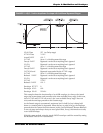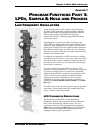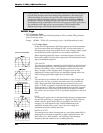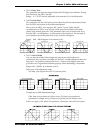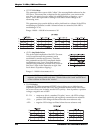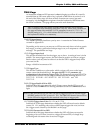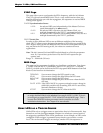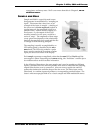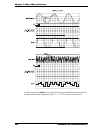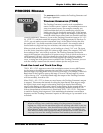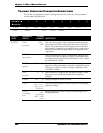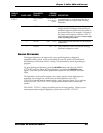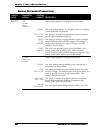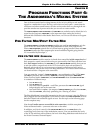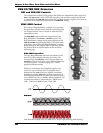
Chapter 7: LFOs, S&H and Process
ANDROMEDA A6 REFERENCE MANUAL 177
arpeggiator, and many more. We’ll cover more about this in Chapter 9, The A6
Modulation Matrix.
SAMPLE AND HOLD
Sample and Hold is a specialty mod source
that generates its modulation by “sampling an
input”. This means that a sine wave, as an
example of the input, is sampled – a reading of
the sine wave’s current amplitude is taken at
regular intervals, the amplitude is held for a
period of time – and the result is output as a
mod source. So, the output of the S & H
module, instead of a sine wave, would be a
series of "steps". The amplitude of those steps
at any given time depends on the relationship
between the sampling clock speed and the rate
of change of the wave being sampled.
The sampling is usually accomplished by an
LFO whose speed is controlled by the
S & H
RATE
knob. This LFO only produces a pulse
that is used to sample the waveform or other
input you select as a source in the display.
Each sample represents an amplitude value that the
RATE LFO will hold until the
next sample is taken. Depending on the
RATE setting, this “hold time” could be just a
few milliseconds to several seconds in duration.
In the following illustrations, the same sample rate is used to sample two different
inputs, a periodic sine wave and an aperiodic noise source. Notice that the resulting
output from the sine wave is symmetrical: it has an even or regular rise and fall
pattern that imitates the uniform shape of the sine wave. The noise input, on the
other hand, is a random input and produces a corresponding random output. The
latter is what most people think of as a classic sample and hold modulation source.



